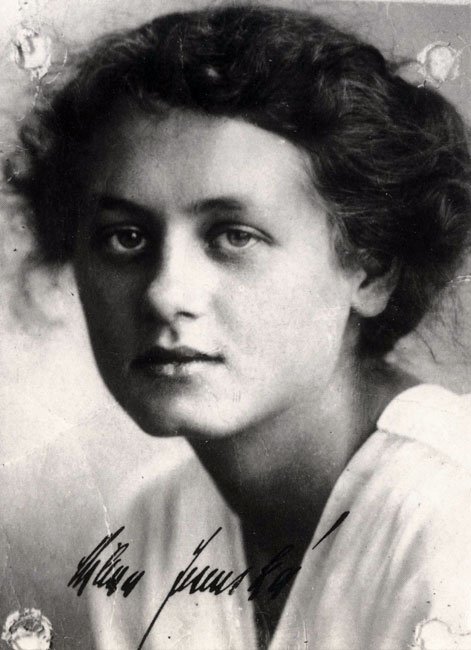Czech Centres / FDULS
Milena Jesenska, born in August 1896, lived an adventurous life. At the prestigious high school she attended, Jesenska became highly involved in the literary community in Prague and was one of the rare few willing to cross the divide between the Czech and German communities. This and her beginning involvement with Ernst Pollak, a Jewish writer, enraged her staunchly patriotic father and he had her committed to a mental hospital for nine months. After her release, Jesenska married Pollak and was completely broken off from her father.
The pair moved to Vienna and she became a journalist, working as a fashion correspondent for a Prague newspaper. During this time, Jesenska read several of Kafka’s stories and wrote to him, offering to translate them into Czech. This started a deeply intimate correspondence between them, mostly through the mail, though they did meet in person a few times. But their relationship had no future, and, eventually, it and their correspondence lapsed and faded away.
Milena Jesenska’s marriage with Pollak was a deeply unhappy one, and in 1924, she divorced him and moved back to Prague. She remarried in 1927, to Jaromír Krejcar, and had a daughter, Jana, a year later. During this time her career in journalism grew. She became an editor of Přítomnost, a known and respected newspaper. Both Jesenska and her writing became more political during this time and she joined the Communist Party but was later disenchanted and disgusted by Stalinist Communism and several “show trials” that happened in 1936 in the Soviet Union and left the party.
In the 1930s her journalism focused on the pressure Nazi Germany was placing on Czechoslovakia. Jesenska traveled to the Sudeten Lands and reported on both how Nazism was on the rise there and how it was being resisted. She encouraged all of her Jewish colleagues to go to Poland and head West. When the Nazis invaded in 1939, she became the head of a resistance movement helping refugees get safely out of the country. Jesenska used her apartment as a temporary safe house, letting refugees hide out there and giving them food and supplies for the journey. Her close friend Count Joachim von Zedwitz would drive refugees from her apartment to the border so they could escape into Poland.
In November of 1939, Milena Jesenska was arrested and deported to the Revensbruck concentration camp for women where she met and befriended Margarete Buber-Neuamnn. The harsh conditions of the camp sickened Jesenska and she died in May 1944, three weeks before D-Day.
Written by Anna Wallace
Sources
Carey, Nick. "Milena Jesenska." Radio Prague International, 8 Mar. 2000, english.radio.cz/milena-jesenska-8070043. Accessed 14 Jan. 2023.
"Milena Jesenska." Yad Vashem The World Holocaust Remembrance Center, 14 Dec. 1994, www.yadvashem.org/righteous/stories/jesenska.html#. Accessed 14 Jan. 2023.




